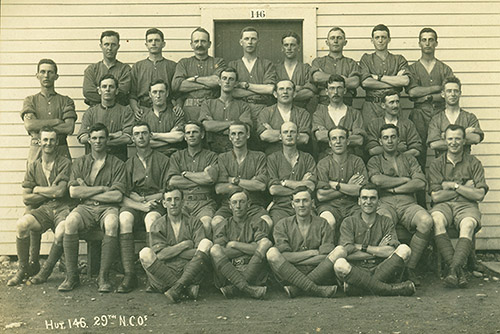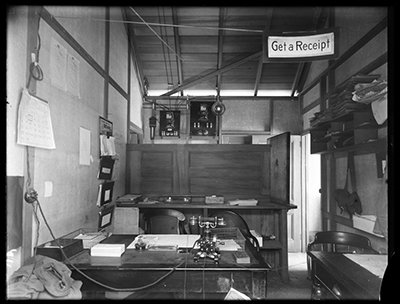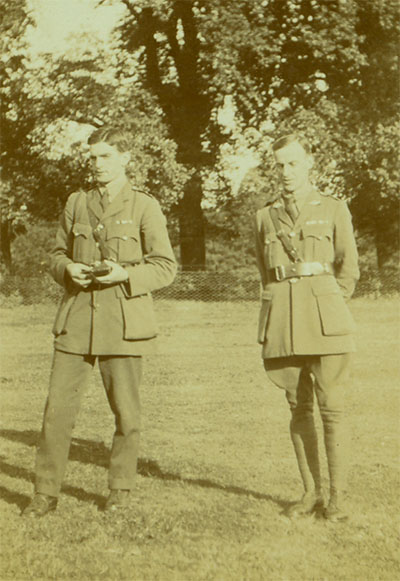Collegians at War
Britain declared war on Germany on 4 August 1914 and within days the first Collegians had enlisted. Over the duration of the War, most joined the New Zealand infantry, in particular the battalions of the Auckland Regiment. Others joined New Zealand’s artillery, medical, engineering and mounted units. A few served with the Allied forces, including in the Royal Navy, the Royal Flying Corps, the Royal Army Medical Corps and the Australian Imperial Forces. Four women served with the New Zealand Army Nursing Service and one with the Australian Army Nursing Service.

This mid-1917 Trentham Military Training Camp photo of non-commissioned officers of the 29th reinforcements includes ten Collegians.
Edna Macky papers. MSS & Archives A-320. Special Collections, University of Auckland Libraries and Learning Services.
Collegians took part in campaigns in all theatres of the War - in Samoa, Turkey, on the Western Front, in the Middle East and, post-war, in occupied Germany. Many were involved in some of the War’s major battles, including at Chunuk Bair on Gallipoli, on the Western Front at Messines, Ypres and Passchendaele in Belgium, and at Bapaume and the Somme in France. They also took part in lesser-known campaigns such as that against the Senussi in North Africa. The first group of Collegians to embark were part of the Samoan Advance Party which captured German Samoa on 29 August 1914; the next large group left for Egypt with the Main Body and first reinforcements in October 1914.
The Collegians took on all military duties, serving in such roles as intelligence officers, machine gunners, medical staff, engineers, chaplains, quartermasters and artillerymen.
Based on the 716 Collegians listed in the last honour roll published in the University's Calendar for 1920, 66 percent held rank - 271 commissioned officers and 208 non-commissioned officers. According to that list, Collegians earned numerous gallantry awards, including three Distinguished Conduct Medals, seven Distinguished Service Orders, one Distinguished Service Cross, 42 Military Crosses and 12 Military Medals. A non-military award, the Companion The Most Distinguished Order of St. Michael and St. George, was conferred on four Collegians.1
For some men it was not their first, or last, war. Donald Murray, a doctor, was in the Royal Army Medical Corps in the South Africa War (1899-1902), in the NZ Medical Corps in the First World War and was the Officer Commanding of Troops on HS Maunganui for a time in the Second World War.2 At least another 10 men went on to serve in the Second World War.
For others, like Ormond Burton, who won the Military Medal and the French Medaille d'honneur in the War, the experience forged strong-held beliefs against militarism. A student at Auckland [Teacher's] Training College and an undergraduate before the War, Ormond Burton attained a Master of Arts from AUC in 1921. In 1936, he helped establish the Christian Pacifist Society of New Zealand and was imprisoned as a conscientious objector during the Second World War.3
Find out more
Visit Their Stories to read about some of the Collegians from the Roll of Honour.
Jo Birks, Special Collections
- Calendar, Auckland University College, University of New Zealand, 1920, pp.115-135.
- ‘Donald Murray’, Cenotaph Database, Auckland War Memorial Museum, accessed 23 June 2014.
- David Grant. 'Burton, Ormond Edward', from the Dictionary of New Zealand Biography. Te Ara - the Encyclopedia of New Zealand, updated 5-Jun-2013




